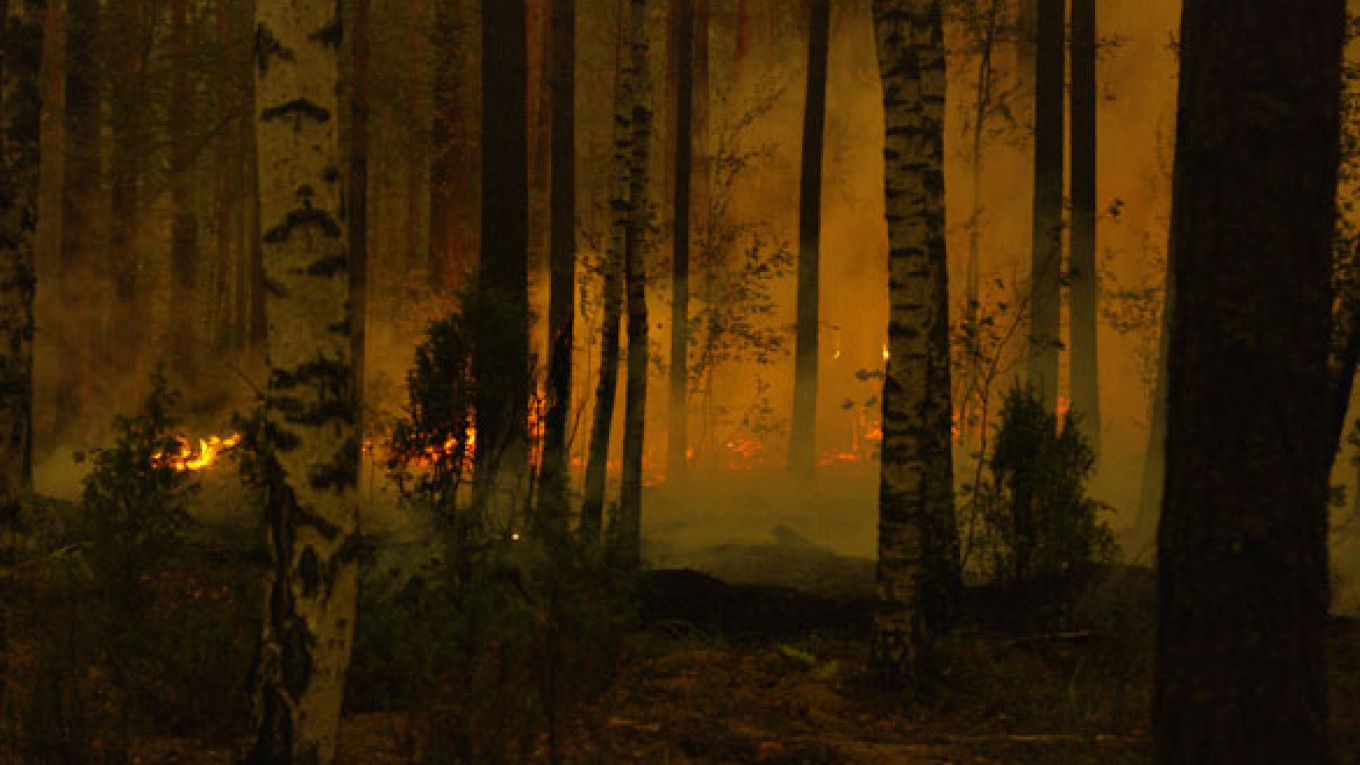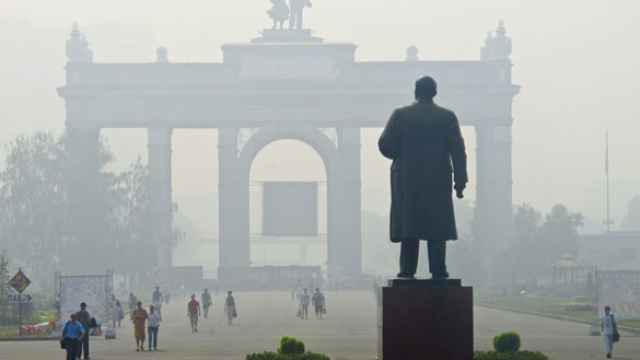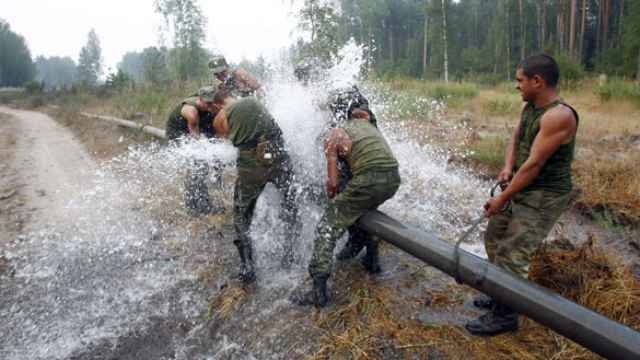President Dmitry Medvedev has ordered the Federal Forestry Agency to be transferred to the direct control of the government as the authorities take steps to ensure that there will be no repeat to the wildfires that ravaged central Russia last month.
First Deputy Prime Minister Viktor Zubkov told Medvedev on Friday that the forestry agency, which formerly reported to the Agriculture Ministry, operated without sufficient authority.
"As far as protecting the forests and supervising forestry operations and fire safety, it turned out that the agency didn't have these functions — they were in different agencies," he said in comments posted on the Kremlin web site.
Medvedev ordered that the forestry functions of the Federal Veterinary and Phytosanitary Inspection Service and the Agriculture Ministry be transferred to the Federal Forestry Agency and called for a detailed review of the 2007 Forest Code.
Critics say the Forest Code, signed into law by then-President Vladimir Putin, was the main culprit behind the fires because it dismantled a centralized system of forest oversight for a more regional system.
Environmentalists supported the bureaucratic shakeup. The World Wildlife Federation "has long called for this step, but the state recognized its necessity only after catastrophic fires, which are only an indicator of systemic problems in forest management," it said in a statement.
The WWF also called for the government to engage more actively with society over forestry policy and for further reforms to the forestry legislation.
The forestry agency's head, Alexei Savinov, was fired two weeks ago and was replaced with his deputy, Viktor Maslyakov.
A Message from The Moscow Times:
Dear readers,
We are facing unprecedented challenges. Russia's Prosecutor General's Office has designated The Moscow Times as an "undesirable" organization, criminalizing our work and putting our staff at risk of prosecution. This follows our earlier unjust labeling as a "foreign agent."
These actions are direct attempts to silence independent journalism in Russia. The authorities claim our work "discredits the decisions of the Russian leadership." We see things differently: we strive to provide accurate, unbiased reporting on Russia.
We, the journalists of The Moscow Times, refuse to be silenced. But to continue our work, we need your help.
Your support, no matter how small, makes a world of difference. If you can, please support us monthly starting from just $2. It's quick to set up, and every contribution makes a significant impact.
By supporting The Moscow Times, you're defending open, independent journalism in the face of repression. Thank you for standing with us.
Remind me later.






